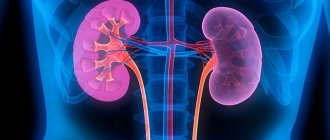Surgeries for malignant lung tumors are complex surgical interventions that are accompanied by the risk of serious complications and require a long recovery period. They can only be performed by thoracic oncological surgeons with appropriate experience in clinics that have appropriately equipped operating rooms. There are minimally invasive techniques that can reduce risks and shorten the recovery period.
The Medicine 24/7 clinic has everything you need for this. Our operating rooms are equipped with modern expert-class equipment from leading global manufacturers. We employ leading doctors who can correctly assess the patient’s condition, determine the optimal scope of surgical intervention, and properly prepare the patient for it. They perform operations of any degree of complexity, including minimally invasive and thoracoscopic ones.
Radical surgery is the main treatment for early stages of non-small cell lung cancer (NSCLC), the most common form of the disease, accounting for 85% of cases. For small cell lung cancer (SCLC), which accounts for the remaining 15%, indications for surgery are much more limited. At the time of diagnosis, such malignant tumors usually have already spread widely in the body and are inoperable. Small, solitary tumors that can be removed occur in less than one in 20 patients.
General information about nephrectomy
Nephrectomy is the removal of a kidney through surgery, which is performed for appropriate medical reasons, for example:
- with severe anomalies in the development of the organ, leading to irreversible consequences, sometimes incompatible with life;
- in case of severe damage to the kidney (as a result of a car accident, fall from a great height, etc.);
- for diseases causing organ dysfunction;
- for kidney cancer;
- with polycystic disease (a congenital pathology characterized by the presence of cysts in the kidneys).
Note! A kidney can be removed not only for medical reasons, but also for the purpose of obtaining a donor organ (with subsequent transplantation to the recipient). In most cases, this is done with the consent of the kidney owner. Exceptions are severe, incompatible with life, injuries to a person (donor) resulting from accidents and other incidents.
Rehabilitation period
The rehabilitation period after nephrectomy lasts from a year to a year and a half and directly depends on the type of surgical intervention (laparoscopy or open surgery).
Other indicators that affect the rehabilitation period include possible complications, the general condition of the body (including the functioning of other organs) and the activity of the remaining kidney, because it will need to work twice as hard. To reduce the load on the organ, experts recommend that patients lead a certain lifestyle, which involves observing the following rules:
- Daily hygiene of the external genitalia.
- Regular walks in the fresh air and light exercise.
- Proper nutrition. Food should not be fatty; during the recovery period, it is advisable to eat steamed, plant-based foods.
- Moderate physical activity. It is strictly prohibited to lift objects weighing more than 3-5 kg.
- No hypothermia or overheating of the body in the postoperative period, because The immune system is still too weak.
- Quitting bad habits, especially drinking alcohol.
Among other things, after the operation it is necessary to be observed by the attending physician (including tests, ultrasound, etc.).
How is a patient prepared for surgery for lung cancer?
Before surgery, the patient undergoes a comprehensive examination, which helps to assess the size, location, number of tumor foci, stage of the disease, identify foci in regional lymph nodes and distant metastases. This helps to figure out whether radical surgery is possible in this case, and which surgical option is optimal. Diagnostic methods such as computed tomography, magnetic resonance imaging, PET-CT, cytological examination of sputum, and lung tissue biopsy are used. Endoscopic examinations may be prescribed: bronchoscopy, esophagoscopy (examination of the esophagus), endosonography. To assess the condition of the intrathoracic lymph nodes, mediastinoscopy is performed. Thoracoscopy allows you to perform a biopsy and assess the condition of the pleura.
The preoperative examination also includes:
- Pulmonary function tests. They help assess respiratory function and determine whether the remaining lung tissue can provide it.
- Assessment of the condition of the cardiovascular system and other internal organs.
- Standard preoperative examination, which includes general and biochemical blood tests, general urinalysis, coagulation tests, blood group, Rh factor, tests for infections (HIV, syphilis, viral hepatitis).
The surgeon must find out what concomitant diseases the patient suffers from, what medications he constantly takes, and whether he has allergic reactions to medications.
Previously, the doctor explains to the patient what type of operation is planned, for what purpose, what the possible risks are, what complications and consequences there may be. After receiving all the necessary information from the doctor, the patient or his legal representative must sign informed written consent.
Statistics show that removal of malignant lung tumors is possible in only about 30% of patients. For others, contraindications to radical surgery include:
- germination of a malignant tumor into neighboring organs, as a result of which it cannot be completely removed;
- a malignant tumor within the lung, which is inoperable due to its size and location;
- multiple metastases;
- severe respiratory, cardiovascular failure;
- severe damage to internal organs.
What to do if the condition does not improve
If after 1-1.5 years the patient’s condition does not improve, you need to contact your doctor and take a referral to a medical commission, which, based on diagnostic examinations, will decide whether to assign the person a disability.
Important! Removing a kidney in itself is not a reason for disability. A person can be recognized as disabled only in the case of certain diseases (for example, oncology, chronic renal failure, etc.) leading to limitation of vital functions (based on the Decree of the Government of the Russian Federation “On the procedure and conditions for recognizing a person as disabled” of 2006 No. 95 , latest version of the document dated June 21, 2018).
Features of registering disability for a child with one kidney from birth
If a child was born with one working kidney and the body functions normally (i.e. the kidney is healthy), disability in this case is not allowed.
If there is a serious threat to the health condition with limited life activity, it is necessary to contact a pediatrician or nephrologist and request a referral for an MSE (medical and social examination). And ITU workers, based on medical documents and studies conducted, will decide whether to assign a disability to the child. For this you will need the following documents:
- Child's birth certificate (original and copy).
- Passport of one of the parents.
- Extract from the medical record about the state of health.
- Application from one of the parents to the ITU office.
- Medical results examinations (tests, ultrasound, etc.).
For the medical and social examination, you need to take with you a diaper for examination and a change of shoes for the parent and child. The examination is carried out by 4 experts with pediatric specialization (including the presence of the child’s attending physician).
After receiving a certificate of disability, parents must contact the Pension Fund at their place of residence to apply for a pension (according to the assigned group) and benefits (including a discount on housing and communal services, free medications, etc.).
Let's now find out whether disability is granted when one kidney is removed.
Conditions for assigning disability
One kidney does not always mean a disability. It can be assigned only if certain conditions are met, for example:
- If there are health problems in which the patient cannot perform usual actions without outside help (emptying the bladder, leaving the house, etc.) and most of the time remains in a serious condition.
- If a person is disabled and needs social protection (i.e. he needs rehabilitation).
- Pathologies of the remaining kidney (polycystic disease, cancer, developmental abnormalities, etc.).
Thus, in the presence of the above points and medical documents confirming the serious condition of the patient, the ITU can assign a disability to the person (usually group 2 or 3 for a period of 1-2 years). At the end of the period (1-2 years), re-examination will be required.
Grounds for assignment of disability
If a person has only 1 kidney from birth or after surgery, benefits are not always given. One kidney is a disability in the following cases:
- a sharp decrease in opportunities for daily self-care without the absence of other persons or help from strangers;
- the patient’s serious condition after surgery for a long time without improvement;
- poor prognosis after surgery;
- disease of the second filtration organ, which sharply reduces urinary function (cyst, abscess, renal failure, developmental abnormalities, malignant neoplasm).
The attending physician cannot issue a certificate of disability. Upon his referral, the patient undergoes a medical commission to check his health status. Specialists determine whether kidney removal will result in disability.
Package of documents for assignment of disability
The following documents must be submitted to the ITU Bureau:
- application for the need to obtain disability;
- identification document;
- a copy of the work book;
- insurance pension certificate;
- referral to medical examination from the attending physician;
- an extract from an outpatient card about the person’s health status;
- test results (blood, urine, ultrasound, urography - x-ray of the kidneys);
- certificate of working conditions at the workplace;
- characteristics from the place of study (for students).
If ITU has assigned a person a disability, you must contact the Pension Fund and the Social Security Administration with the list of required documents (see above).
Attention! In case of refusal to assign a disability, the decision can be challenged in a higher authority (in the regional commission or in court).
Obtaining disability after kidney removal
To obtain a certificate of disability, the patient should collect a list of documents:
- application from the patient for a certificate;
- passport or other identity document;
- photocopy of sheets from the work book;
- insurance pension certificate;
- referral for a commission from the attending physician;
- medical history, all data on instrumental and laboratory tests (ultrasound, X-ray, MRI, CT, general clinical analysis of blood and urine, blood biochemistry and other examination results);
- a certificate from the workplace about the conditions in which the person works;
- if the patient is a minor, they take a certificate from the place of study.
If the commission determines the presence of disability during kidney removal, the person must contact the Pension Fund and Social Security Authorities. There the size of the pension and benefits will be determined depending on the group received.
If, after passing the commission and asking the patient whether or not disability is granted after removal of a kidney, a refusal is issued. A person has the right to appeal to have the case reconsidered.
Examination for passing the ITU
To identify the patient’s health status and determine whether disability is given after the removal of one kidney, the following examination methods are used:
- general clinical analysis of urine and blood, blood biochemistry, Zimnitsky and Nechiporenko test;
- urography - X-ray contrast study to determine the parameters of the obtained tissue and the urinary tract;
- Ultrasound - determines the presence of stones, violations of the integrity of organ tissues, changes in blood flow, the presence of neoplasms;
- Rehberg test - determines the quality of glomerular filtration after contact of an organ with toxic substances.
All data is collected in one folder and examined by specialists from the medical examination commission. The person is completely examined, a list of complaints, the presence of his living conditions, and the medications used are collected. The attending physician is asked about the patient’s health after the operation. Only after collecting all the data is it determined whether disability is due when one of the kidneys is removed.
Bad tests alone are not enough. Doctors must identify that the patient’s health is deteriorating sharply. There is no possibility of a favorable outcome for him. Medications and physiotherapeutic treatment do not help.
Disability groups and main criteria for their significance
There are 3 groups of disabilities with one kidney. Each of them has its own criteria for receiving pension payments and benefits.
- First group. The patient's ability to perform various functions is sharply reduced. The patient needs constant care from loved ones, relatives or medical workers. The prognosis is poor and can lead to death. The group is intended for people suffering from cancer of the remaining paired organ at the last stage, or serious renal failure.
- Second group. The patient is determined to have a decrease in ability and vital functions. Its prognosis is questionable and can lead to serious deterioration in health or death. The remaining paired organ may have glomerulonephritis, pyelonephritis, chronic renal failure, stage 2 or 3 malignancy.
- Third group. A person's vital functions are limited, but not completely. He cannot engage in hard work that requires the use of physical strength. This group is given temporarily to people who have a post-operative, long-term non-healing wound. Disability is granted for a period of no more than two years. After completing the period, the person is re-tested by a commission, determining whether he will continue to be given disability with one kidney. It may be extended, transferred to another group or cancelled.
After the expiration of the period for a certain group, the patient may have the group removed in the following cases:
- improvement of vital functions in the presence of 1 paired organ;
- gradual emergence of self-service capabilities;
- improvement of laboratory and instrumental analyzes on the quality of the remaining organ;
- refusal to reconsider the case for a medical examination;
- the presence of a favorable outcome during drug or physiotherapeutic treatment, repeated surgery on the remaining paired organ.
To find out if one kidney is removed, whether disability is due in the presence of the remaining paired organ, you should consult with your doctor. He must introduce the patient for a long time, prescribe medication, and give directions for various types of rehabilitation. But if there is a possibility of improving your health, the urologist will not be able to give a referral. Initially, they go through all stages of therapy, only then do they think about disability.
Criteria for determining disability groups
A particular group can be assigned in accordance with certain criteria, for example:
- The third disability group is indicated for moderate restrictions on the vital functions of the body, as well as for persons engaged in heavy types of work (where great physical activity is required). This also includes patients with a postoperative wound that requires healing. The period for determining disability in this case is 1-2 years.
- The second group is if the prognosis for recovery is questionable and there is a persistent limitation of life activity (with acute pyelonephritis in the remaining kidney, chronic renal failure, cancer, etc.).
- The first group is assigned when there is a sharp limitation of vital functions, when the patient needs constant care and cannot care for himself (for example, disability due to stage 4 kidney cancer).
If, after the expiration of the period of disability, the patient has not improved, it is necessary to undergo re-examination (i.e., the person must undergo the examination again and provide the results to the members of the commission).
Group assigned after kidney removal
Is there a disability category if a kidney is removed?
Because the designation criteria are quite strict, the person must provide a truly compelling reason to demonstrate his or her disability (or limitation thereof). And based on medical data on the patient’s health status, they are assigned to group 2 or 3. The first is given extremely rarely, when there is a serious threat to life. But the mere fact of not having a kidney does not provide a guaranteed right to receive one or another group. After all, if the functions of the remaining kidney are not lost, a person can fully work and live in the usual way. Among other things, the decisive role in assigning disability is played by how many times a person has recently (six months, a year) sought medical help, as well as the number of hospital stays and critical conditions during the rehabilitation period (from the moment of nephrectomy).
Life after thyroid removal
16.03.2020
The thyroid gland is one of the main components of the endocrine system of the human body. It controls the activity of absolutely all organs and systems of the body with the help of produced hormones .
Surgery to remove the gland is needed only in cases where there is no effect from treating diseases with medications and the patient’s condition significantly worsens.
The operation performed significantly changes the patient’s existence because he is required to undergo continuous hormonal therapy , constant examinations by a doctor , and adherence to many daily rules.
When is surgery needed?
Surgery is needed in cases where medications do not provide the required results.
There are a predetermined number of indications for thyroid removal:
- various types of goiter;
- tumors - benign and malignant;
- toxic adenoma.
How will a patient’s life change after removal of the thyroid gland?
The patient will become hormonally dependent immediately after the operation . He should regularly take thyroxine, an active substance that prevents the formation of hypothyroidism . If the doctor prescribed the exact dosage, and the patient does not forget to take it in a timely manner, the slightest discomfort should not appear. However, with the wrong dosage or regularly skipping pills, negative results may follow - psychological depression and nervousness, sudden weight loss, changes in the condition of the skin and hair.
Dependence on maintenance therapy is a significant circumstance, as a result of which the patient is assigned disability after removal of a goiter of the thyroid gland or the organ itself.
After surgery, a patient is prohibited from:
- load the body with heavy loads;
- perform work that requires a specific pace and sudden switching of interest;
- carry out work associated with large loads on the shoulders .
Granting disability
If the patient has decided to receive disability, he initially needs to visit an endocrinologist . After the appointment, the endocrinologist is obliged to examine the tests and give a referral to the patient to undergo a medical examination. To conduct an examination, you will need a specific document with the information noted in it - the patient’s health status, whether he has injuries, the presence of side diseases and a list of absolutely all recommended rehabilitation measures .
Before going to the commission, it is advisable to undergo a number of studies:
- Ultrasound of the liver ;
- chest x-ray
- assessment of total protein and fractions;
- the amount of iodine in the body bound to protein, as well as the level of thyroid hormones .
The commission will analyze all the data without exception and make a decision to recognize the patient as disabled or to refuse to assign a disability group. Basically, doctors provide a disability group to those patients who have had a gland removed due to cancer. In addition, at the time of therapy there is every chance of various kinds of complications occurring. These include:
- hypothyroidism;
- loss of voice, in case of nerve palsy;
- impaired neck ;
- limitation in the functioning of the shoulder joint.
There are 3 disability groups:
- 1st category of disability is provided for complex hypothyroidism and particularly serious pathologies;
- The 2nd and 3rd categories of disability are assigned for typical or simple levels of hypothyroidism , incomplete voice pathology or poor ability to work in the shoulder joint.
Disability gives the right to certain tax benefits, services and is the basis for establishing a pension for the patient, the amount of which directly depends on the disability group.
Published in Diseases of the endocrine system Premium Clinic











